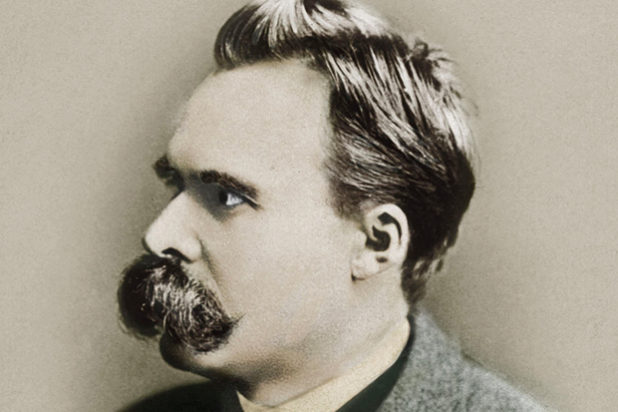Hunter Wallace
Occidental Dissent
December 24, 2016
Robert Carle writes at The Federalist:
“American academics are rightly alarmed by the ascendance of the alt-right and its entrenchment in American politics. The alt-right includes nativists, conspiracists, isolationists, Putinists, white nationalists, and masculinists. The alt-right is pessimistic about the ability of people of different races and religions to live together, and is hostile to both legal and illegal immigrants. Alt-right websites warn against the dangers of miscegenation and criticize the pro-life movement as “dysgenic” because it encourages breeding by “the least intelligent and responsible” women.
But American academics have been slow to acknowledge how dependent the leaders of the alt-right are upon playbooks that they learned on university campuses. These leaders are not southern Klansmen. The president of the National Policy Institute graduated from the University of Chicago. The founder of American Renaissance graduated from Yale.
Over the past 50 years, universities have replaced the Enlightenment ideal of a common humanity with a vision of an America divided into warring races and classes. They have purged their schools of the Enlightenment liberals (“dead white males”) who trained earlier generations to defend universal values over tribal values.
Today, students on college campuses are much more likely to read identitarians like Lani Guinier and Marxists like Howard Zinn than to read John Locke, Adam Smith, and David Hume. In this environment, working-class white men have come to see themselves as an economically and politically marginalized tribe. …
In my case, I recall visiting the New Books section of the Auburn University Libraries and day after day seeing a new title about how All White Men Suck. I was also struck by the large number of Jewish names among the authors. Previously, I hadn’t given any thought to the Jewish Question, but I was starting to read Stormfront at the time and what I was seeing led me to believe the anti-Semites might be onto something.
I think it would be more accurate to say that the anti-White atmosphere on campus (this wasn’t my personal experience at Auburn, I only read about it from a distance) contributes to a growing sense of alienation among young White men. In turn, the alienation leads to an openness to new and unorthodox ideas. This is particularly true after one discovers that the Left is openly hostile to White men, but the mainstream Right is too “cucked” to become their champions. The only group around that unapologetically champions the identity and interests of Whites, who are under siege as a race on American college campuses, are the White Nationalists so that’s where many of us ended up.
In trying to make sense of the world, I remember having a long encounter with Friedrich Nietzsche in my early years. Obviously, Nietzsche had a much greater impact on the young Richard Spencer – the “Become Who We Are” theme of the 2016 NPI Conference comes directly from Nietzschean philosophy. In hindsight, I think it was Nietzsche’s book On The Genealogy of Morals that left the greatest impact on my worldview.
I was struck by Nietzsche’s idea that morality has evolved and radically changed across history. I was already a history buff and knew by that point that 19th century America was free of the concept of “racism.” The Old South, for example, could have only been created by a people who had no idea that “racism” was immoral. Actually, the more I learned about the past, the more I began to see that the concept of “racism” was absent from all of Western history, religion and philosophy until the mid-20th century. Nietzsche’s “transvalution of values” had taken place in the recent past in the United States.
Here in the South, I was seeing it all around me. The Confederate Battle Flag, for example, a long beloved symbol of Southern honor and pride was under attack. Confederate monuments were being removed. “Gay marriage” was being debated. Within my own lifetime, I have seen the rise of new concepts like “white privilege” and “homophobia” and “transphobia.” Isn’t this what Nietzsche was talking about in the concept of “slave morality”? What used to be evil was now good and what used to be good was now evil. Southern heroes like Robert E. Lee or Jefferson Davis were being recast as racist slaveowners and villains.
From Nietzsche, I discovered Michel Foucault while I was in college. It might sound really strange that a White Nationalist would be interested in Foucault given that Foucault was a French homosexual who died of AIDS in the 1980s, but Foucault built on Nietzsche’s work. Foucault wrote extensively about how power was exercised through discourses that construct subjects. He wrote about how power influences knowledge and how knowledge is used by those who wield power. For someone who is accustomed to being covered by the Lügenpresse as THE racist or THE white supremacist or THE hate group in the Narrative, which skews how ordinary people think about morality and politics, I found it all rather insightful. In 2015, we invented a subject of our own, the cuckservative.
From Nietzsche and Foucault, I was introduced to genealogy. I developed the habit of treating concepts like artifacts. Look here at “racism” or this notion of “white privilege” – what’s the history of “racism”? How did “racism” come to be seen as immoral? Why did “racism” come to be seen as immoral? When did “racism” come to be seen as immoral? Who benefited from constructing “racism” as a tool to bludgeon the Right?
A genealogy of “racism,” for example, reveals that Nietzsche and Foucault were on to something in their views on power and knowledge. Westerners came to think of “racism” as the great taboo during the Second World War. We know that being a “racist” makes you a really, really bad person as a result of … a massive war, one that continued for a generation during the Cold War, when fighting with the Soviet Union over the allegiance of the Third World made Southern segregation a foreign policy liability for the Kennedys.
In the United States, the worst thing you can be is a “racist,” and it turns out that is the result of a political struggle … first, between the Allies and the Nazis in Europe, second with the Soviets in the Cold War, and third with the Civil Rights Movement in the United States and anti-colonialism/independence movements in the Third World. It also had a lot to do with the changing demographic composition of the American elite in the mid-20th century due mainly to the meritocratic system at Ivy League universities. As Jews clawed their way into the American elite, they constructed new taboos around “racism” and “anti-Semitism.” These new taboos have only proliferated into the -isms and -phobias of political correctness that have replaced traditional morality.
“If academics are concerned about the degraded state of American politics, they should begin engaging, debating, and discussing politics with their political opponents instead of setting up echo chambers where only progressive points of view are allowed. The American experiment in human liberty depends upon universities that transmit to future generations respect for free speech and open and honest debate. To sustain our republic, we need desperately to recover the healthy intellectual habit of learning from opinions that we find offensive. A people that ceases to educate in freedom will cease to live in freedom.”
Circling back to Professor Carle, we have already drifted a long way from Enlightenment liberalism. Even if the system we have now was less anti-White, I’m sure Richard Spencer would agree that he still wouldn’t believe in Enlightenment liberalism. Neither of us have become who we are today because, say, Condoleezza Rice or Ben Shapiro was prevented from speaking on our college campuses in our formative years.
I don’t believe in anti-racism because it isn’t true. It is simply a taboo that was constructed and imposed on America by the media in the aftermath of the Second World War. It was created because it served an interest at the time. Why should I or anyone else be limited by that?
 Daily Stormer The Most Censored Publication in History
Daily Stormer The Most Censored Publication in History



